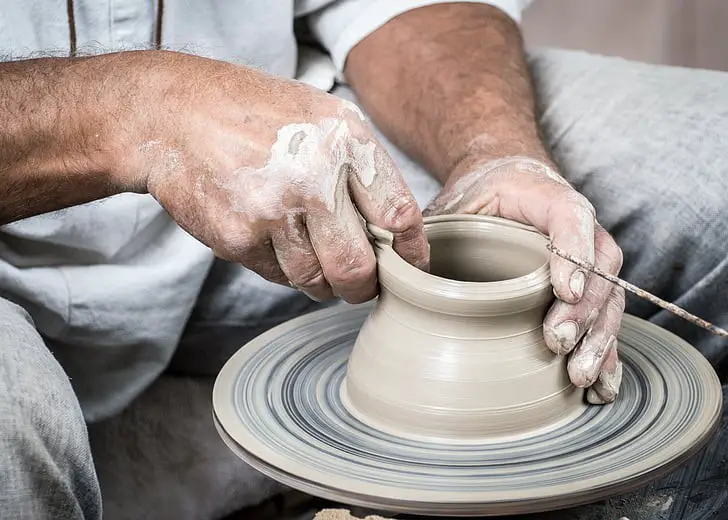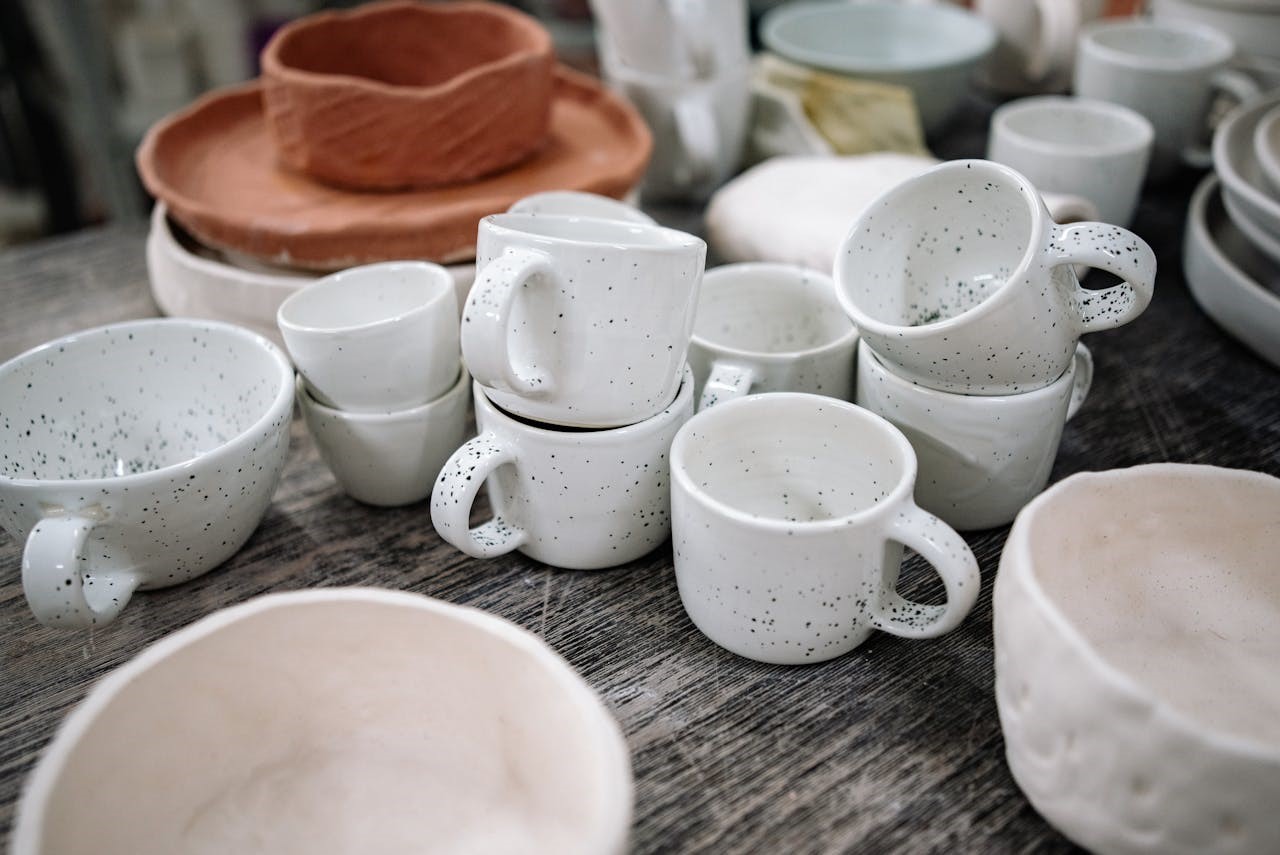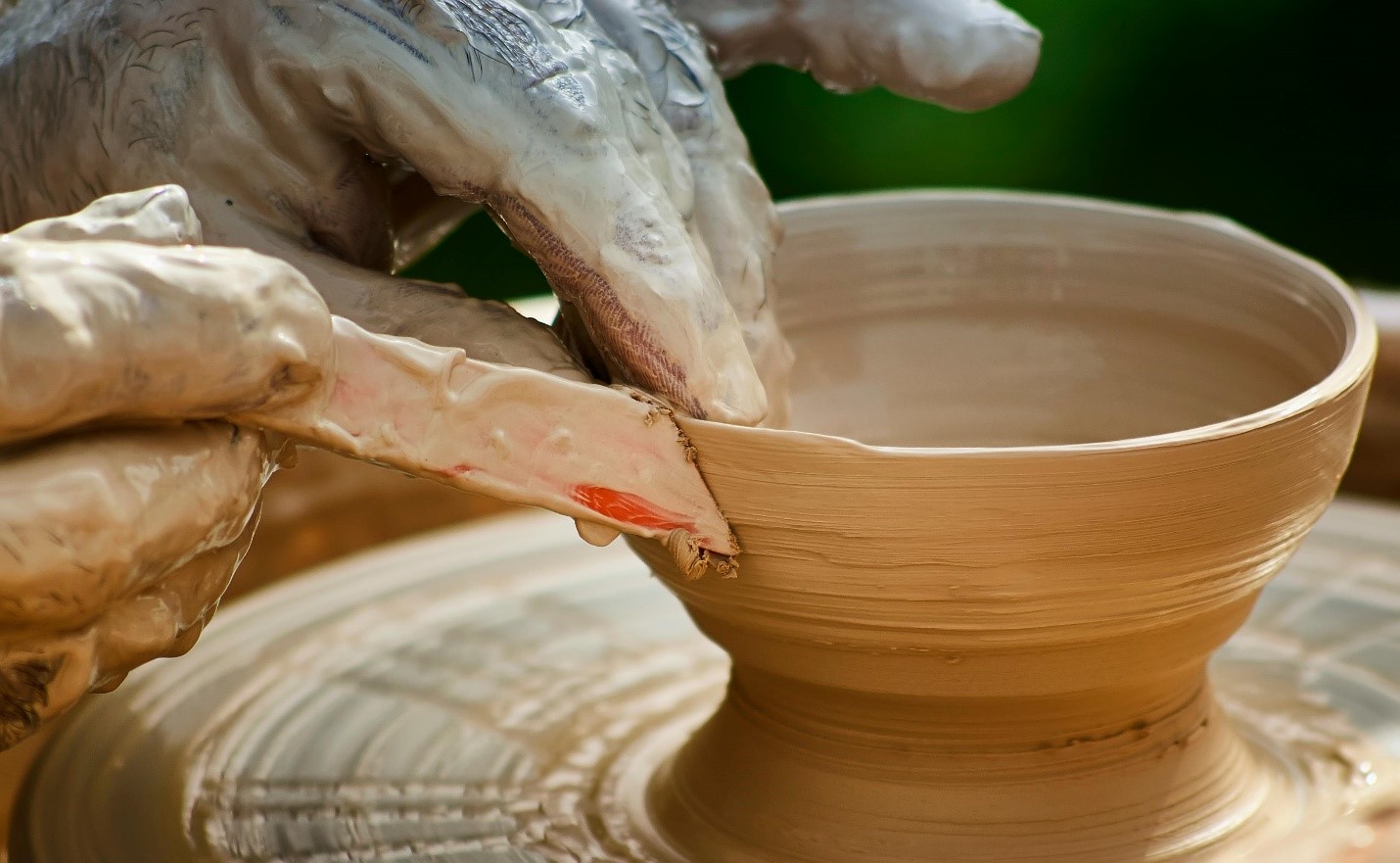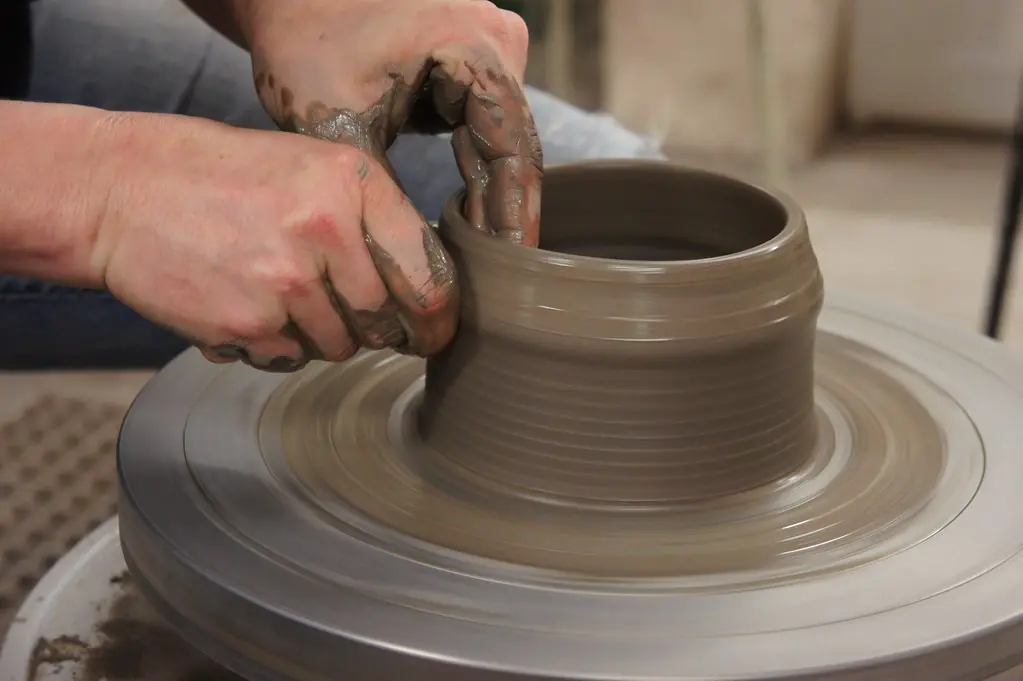Ceramic is prominent everywhere and is used in our everyday lives. Washing is a form of caring or cleaning for these pottery masterpieces, although the question is ceramic pottery dishwasher safe? A lot of times I have been asked questions about pottery pieces and dishwashers. Some potters claim some pottery projects can be used in a dishwasher while some pottery pros are indifferent about the use of dishwashers for pottery.
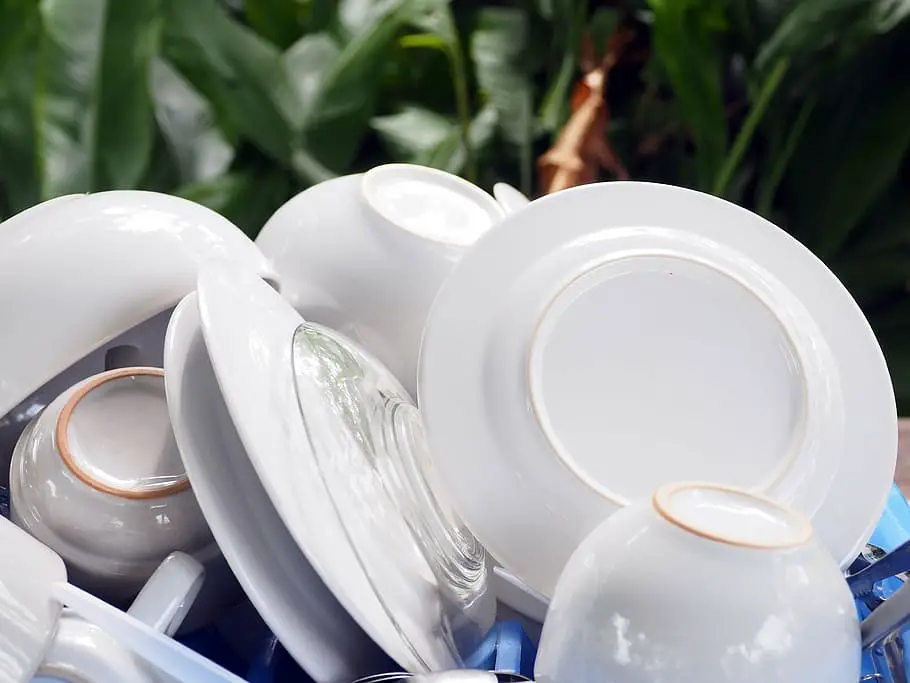
There is a general rule stating that if you can put food in the ceramic then you can put it in the dishwasher. Most pottery pieces go along with this rule however there are few exceptions. All ceramic dinnerware and cookware are dishwasher safe if packed in carefully. However, there are exclusions such as softer ceramics, ornate pieces, and ceramics with a delicate glaze.
WHAT CERAMIC CAN GO INTO THE DISHWASHER?
Just as the name implies, “dishwashers” are for ceramic dishes and dishes alone! Dishwashers are not made for sculptures. Don’t ever try to place a ceramic sculpture in the dishwasher. Apart from the fact that your pottery will be damaged, it can cause serious damages to your dishwasher. Ceramics made from both mid-fire stoneware and high-fire stoneware clay are dishwasher safe. Research has proved that a few kaolin pieces can be placed in a dishwasher. Stoneware pieces can be placed safely in the dishwasher because they are quite hard and rigid. Whether vitrified or not, stoneware is nonporous (does not soak up liquids). For several years, stoneware has often been used for high-quality as well as utilitarian wares.
Stoneware dishes get their rigidity from the Kaolinite present in the clay. Kaolinite is actively present in stoneware clay but disordered, and although mica and quartz are present their particle size is very small. Stoneware clay is often accompanied by impurities such as iron or carbon, giving it a “dirty” look, which makes it hard to crack. Also, stoneware dishes are strong enough to withstand dishwasher conditions because of the high temperatures used while firing. According to Wikipedia, stoneware pieces can be fired between 1,100 °C (2,010 °F) to 1,300 °C (2,370 °F). The high temperature tightens the clay body of the dishes which makes it tough to dunt or shatter if it moves around in the dishwasher.
CERAMICS THAT ARE NOT DISHWASHER SAFE
Ceramic pottery is most likely to get chipped, crazed, dunted, cracked or shattered if it rattles or moves around in the dishwasher. It is not trivial to make sure that ceramic dinnerware and cookware are not only securely packed but also nothing else is likely to 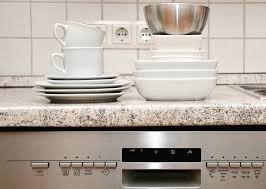 knock into them during the wash cycle. This means you should avoid putting strange objects in the dishwasher. In this case, strange objects are metal plates, heavy pots, and covers. The more ornate a piece is the more edges and seams there are to crack and give way.
knock into them during the wash cycle. This means you should avoid putting strange objects in the dishwasher. In this case, strange objects are metal plates, heavy pots, and covers. The more ornate a piece is the more edges and seams there are to crack and give way.
With that being said, be careful when handling softer ceramics in the dishwasher. Based on my opinion, I will advise you to never put soft ceramic pieces in the dishwasher. Soft ceramics are mostly Earthenware and a few stonewares. Earthenware and some stoneware use less refined clays and are fired at lower temperatures than porcelain, which means they’re more fragile and more porous.
Porous ceramics absorb the water in the dishwasher. This will affect how well the pottery will handle temperature changes, which makes it more susceptible to cracking or breaking. Besides, the dishwasher soap will be mixed with the water, will be absorbed by the ceramic dish which can affect the taste of meals served in the dish afterward.
Ceramics with bright glazes should not be washed using dishwashers. In the humid, soapy environment of the dishwasher, bright glazes may wear down. At best this might result in a dull finish on your dish, but it can also result in flakes of glaze getting into food, or worse still, toxic chemicals leaching out of the glaze.
TYPES OF GLAZE AND THEIR TOXICITY
| GLAZE | TOXICITY |
| Earthenware Lead-Free Glazes | NOT TOXIC |
| Earthenware Glazes Containing Fritted Lead | HIGHLY TOXIC |
| Stoneware & Mid-Fire Glazes | NOT TOXIC |
| Raku Glazes | NOT TOXIC |
HOW TO KNOW IF CERAMIC IS DISHWASHER SAFE
There are a few ways to know if your pottery is dishwasher safe. The easiest and the most noticeable way to tell if you can put your ceramic in the dishwasher is to check if it’s marked as dishwasher safe underneath. Most commercially produced ceramics have an indication that tells if the piece can be washed in the dishwasher. If there is no label indicating a ceramic is dishwasher safe on an earthenware piece, it is best and safe to assume they are not.
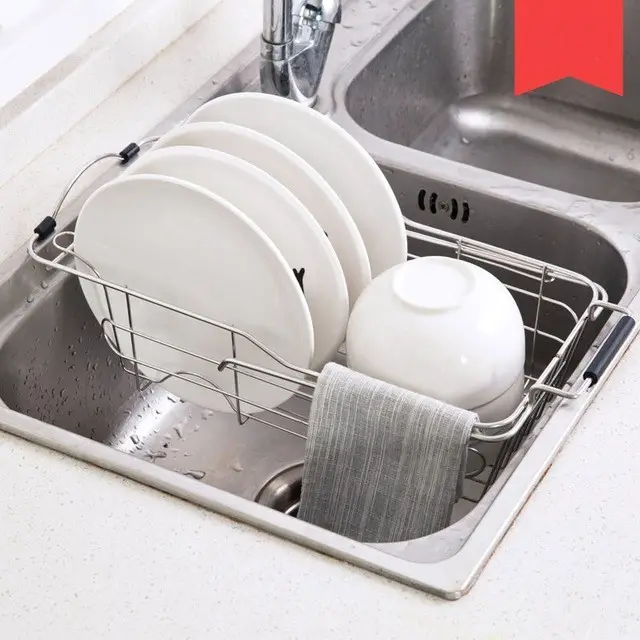
You can tell if ceramic is dishwasher safe by inspecting the glaze used over the piece. Although glazes are hard to tell unless it is specified by the potter but if the ceramic dish is brightly painted, it’s advisable to keep the pottery piece out of the dishwasher. Decorative glazes tend to be fired at low temperatures, which allows more vivid and varied colors.
You can also check if your ceramic glaze is dishwasher safe by performing a few tests like
– Boiling the item for 6 hours in soda ash,
– Leaving a slice of lemon on it overnight
– Scratching the surface with a sharp knife can all reveal a potential weakness in the glaze
If your ceramic fails any of the above tests, it is a clear indicator that it is not dishwasher safe. It fails the test when the glaze on a ceramic piece starts peeling off. Although the piece has been damaged, copies/replicas of that ceramic should not be near dishwashers.
HOW TO WASH CERAMIC DISHES
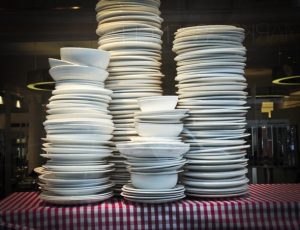 The safest way to ceramic dishes is to wash it by hand. When you wash ceramic dinnerware by hand, not only can you take care to ensure it doesn’t receive any undue cracks and scratches, but you can also limit the amount of time it spends submerged in water.
The safest way to ceramic dishes is to wash it by hand. When you wash ceramic dinnerware by hand, not only can you take care to ensure it doesn’t receive any undue cracks and scratches, but you can also limit the amount of time it spends submerged in water.
Pro Tip: Unglazed Ceramics should steer clear of soap. Unglazed dinnerware should not be washed with soap or else you will taste the soap in the food you eat.
In this article, I have explained if washing pottery pieces in the dishwasher-safe, the type of ceramics that are dishwasher-safe, and how to know if your ceramic is dishwasher-safe.


